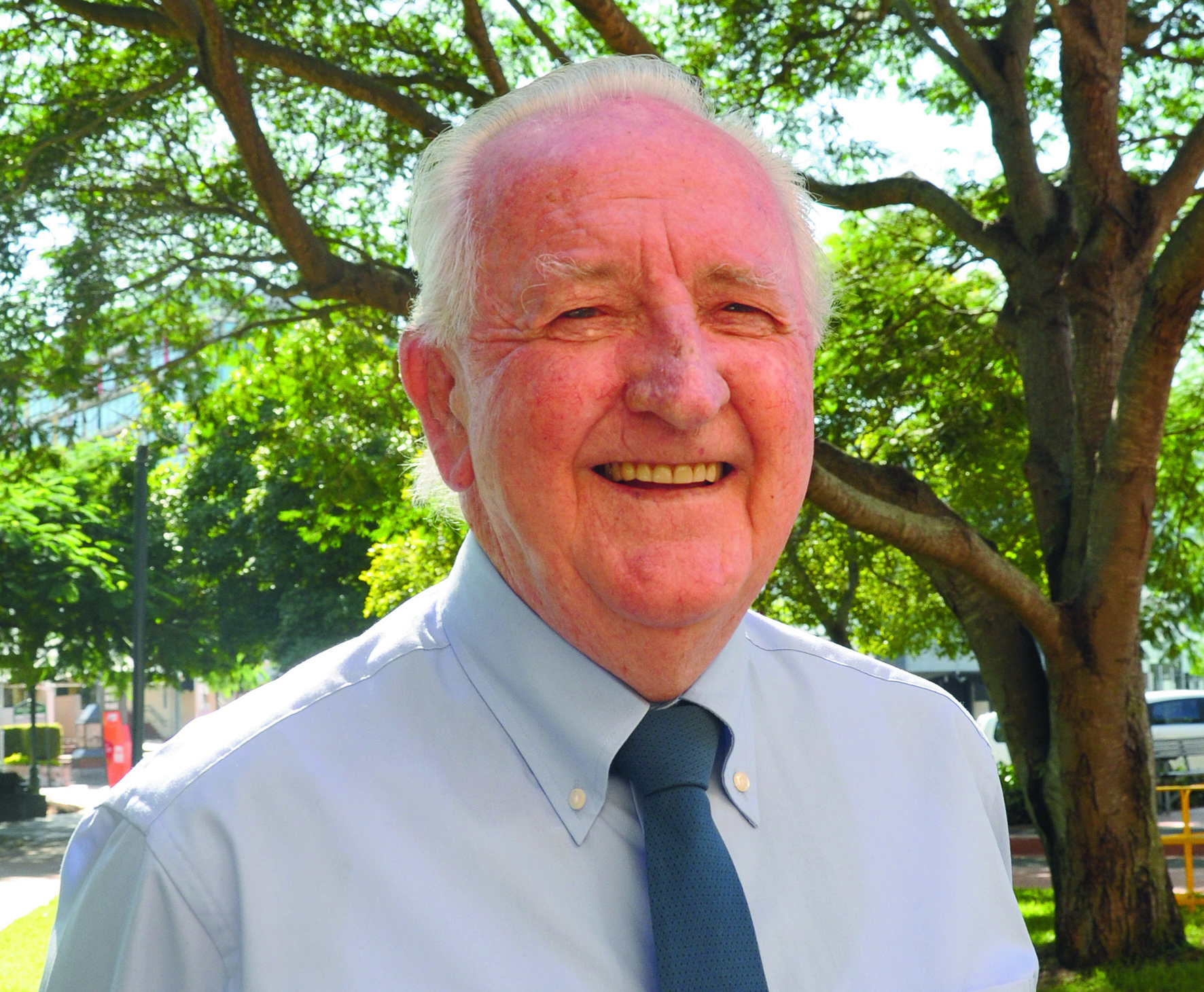Ipswich veteran Matt Rennie OAM was just 18 when he set off to serve in the Korean War.
A member of the 3rd Battalion, Mr Rennie was out on patrol on 24 May, 1953, when he was shot in the head, with the bullet going through his helmet and grazing his skull.
“I saw it out of the corner of my eye, and the next thing I went down. I’d been hit,” Mr Rennie recalls.
Mr Rennie credits his best mate and fellow soldier, Frank Connelly, with saving his life that night.
“Frank was there and tore open a field dressing with his mouth to bandage up my head,” Mr Rennie said.
“But his false teeth fell out as he did it and when he put them back in, he ended up getting poisoning because of the fertiliser in the soil.”
It became a long-running joke between the two mates for decades.
“He’d always say ‘It was your fault, you tried to poison me’,” Mr Rennie remembers.
“We were like brothers. We spoke every week on the phone for more than 60 years.
“When he died, it felt like my left arm had been cut off.”
That sense of comradery and mateship of all those who have served will be at the front of Mr Rennie’s mind when he turns his radio up loud for the 4.27am dawn service.
But with all services, marches and gatherings called off due to COVID-19, Anzac Day this year will be a tough one for Mr Rennie.
It’s also the first Anzac Day he’ll be spending without his beloved wife Margaret, who died last year just a day before their 64th wedding anniversary, prompting his decision to move from their Brassall home to a Springfield retirement village.
Matthew Rennie celebrating his Order of Australia medal with his wife Margaret.
“It will be very hard and it’ll rustle up a lot of memories,” Mr Rennie said.
“It’s going to be very emotional not to pay our respects as we’ve been doing for donkey’s years but it’s the only way we can control this virus.”
“One thing I’ll really miss this year is not going to schools. I always look forward to doing that around this time each year and speaking to the children about what Anzac Day means.”
The veteran said he was honoured by the recognition he’d received over the years from the South Korean and Australian governments, including an Order of Australia medal.
“It was quite an honour for a knockabout bloke like myself,” Mr Rennie said.
“I was born during the depression era, so as a 17 year-old it all sounded like a big adventure back then to head over to Korea and the jungles of Malaya, and if you asked, most would tell you the same thing.”
The battle of Inchon in 1950: From 1950-53, Australia fought as part of a multinational force defending South Korea from an invasion by North Korean forces. More than 330 Australians were killed in action.
But for many, those adventures came at a cost, with Post Traumatic Stress Disorder and other mental health issues carving deep battle scars for years to come.
Recognising those forgotten soldiers who were lost to the system as a result of mental illness is Mr Rennie’s current mission. For more than a decade, he’s been working to identify dozens of the 72 veterans who were former patients at Ipswich’s Sandy Gallop Asylum.
“There was so much stigma then and they were completely forgotten. Nobody thought to ask why a bloke who’d won a military medal for gallantry ended up in a mental home,” Mr Rennie said.
“The worst part about it is when a veteran at Sandy Gallop died, the boiler man just knocked up a box – not even a coffin- and they buried him in an unmarked grave. No service, nothing.”
Matt Rennie OAM with fellow members of the RSL Ipswich sub-branch.
While going through original records is a long process, Mr Rennie says he won’t give up until every veteran is identified.
“We can’t leave them without recognition,” Mr Rennie said.
“It can be tiring but we’ve made good progress and every veteran we identify is important.”
Read more:

